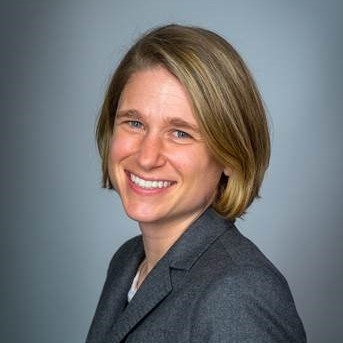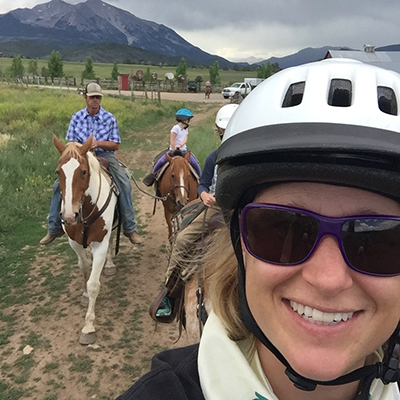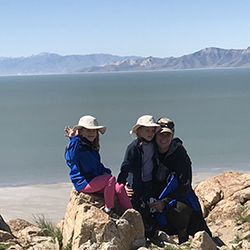Faculty Feature: Dr. Elizabeth Callaway

Dr. Elizabeth Callaway is an assistant professor in English and an Environmental Humanities faculty affiliate. Dr. Callaway was the inaugural Environmental Humanities Post-Doctoral Fellow from 2016-2018 and was a Digital Matters Fellow from 2018-19 before she was appointed to the English faculty in 2019. Dr. Callaway remains an invaluable core faculty member in the EH Program. She currently teaches Research Methods in Environmental Humanities, and has taught Ecology of Residency, and our seminar, Issues in the Environmental Humanities. She has fostered student success in our program by creating a prospectus development workshop and has served on 8 EH master’s supervisory committees. I sent Dr. Callaway a list of questions about her academic interests and advice for students; her written responses appear below.
Your work spans speculative fiction, digital humanities, new media studies and environmental humanities. Could you talk more about this intersection? How does your undergraduate work in biology tie into your work?
My work is primarily in the field of ecocriticism (or environmental literary studies),
which means that I read literary texts and examine how they represent the environment,
more-than-human organisms, and ecological relations. I dip into media studies and
digital humanities because efforts to address and explain environmental challenges
do not exclusively appear in literary texts. There are many born-digital objects that
also tell fundamental and world-shaping stories about how we imagine the environment
and our relationship to it—video games, databases, scientific visualizations, visual
art, and software. As a literary scholar I focus on the ways these objects use narratives,
genre conventions, metaphors, and analogies to tell a story or make an argument about
the world. When I am looking at literary objects like novels and poems, I’m drawn
to speculative fiction for its imagination of alternative worlds and the way it expands
the possibility space of our environmental thinking.
I think my biology background from undergrad informs what topics I find interesting and eventually pursue. My entire first book was about the biological concept of biodiversity, after all. But it also comes in handy when I want to write about scientific objects. In one article I examine the narratives told by famous climate change graphs, like the hockey stick graph, and in my book I look at evolutionary trees as a particular storytelling form that is ill-suited to times of species diminishment.
What attracted you to faculty work in Environmental Humanities?
Environmental Humanities is a the most fantastic second academic home for me because interdisciplinary work is expected. That long list of my subfields you included in your first question is not uncommon for faculty in EH, and I get to interact with faculty and students whose work spans the entire spectrum of humanities disciplines. The students are a delight to work with too. They have interesting ideas, an incredible work ethic, and are generous thinkers.
Your book, Eden’s Endemics is approaching its one-year publication anniversary - congratulations! How has its
publication affected your current academic interests? What are you working on now?

Thank you! I’m beginning to work on a project about artificial intelligence and the environment. I ended my last book with a coda that looked at an AI from David Mitchell’s Ghostwritten that I read as an exaggerated, machinic natural historian, and that got me interested in both the science fictional portrayal of AI’s role in environmental protection (think “the learners” in The Overstory) and the real-life uses AI is being put to in ecological research (like the automatic counting and identification of pollen species in samples).
For our incoming students, what would you recommend the steps they take to be successful in the Program?
My practical advice is to start thinking about your thesis early. Two years is a short amount of time to complete a compelling project, so aim to be thinking about your thesis project from the beginning. Try to use your essays and assignments to think through aspects of a potential project or to do preliminary research. Most importantly, be sure to keep up to date on all the deadlines for filing paperwork with Cory. Those deadlines aren’t arbitrary--they’re there for your benefit.
On a less academic note—take time to bond with your cohort. Cohorts that are friendly and supportive of each other do really well as a group. The students really do lift each other up and help each other in school and in life. You have a built-in pool of interesting, engaged people to interact with. How awesome is that?
